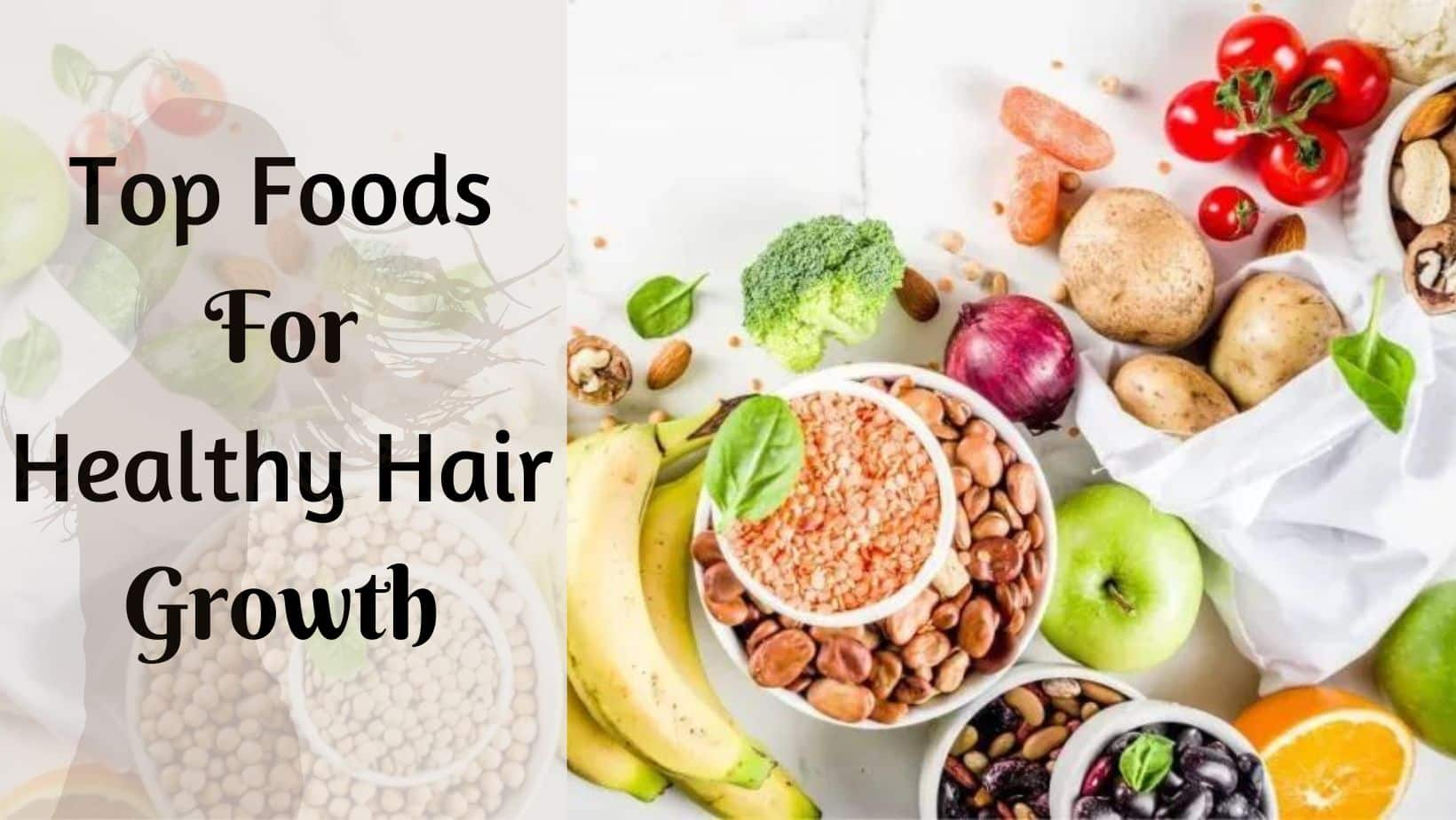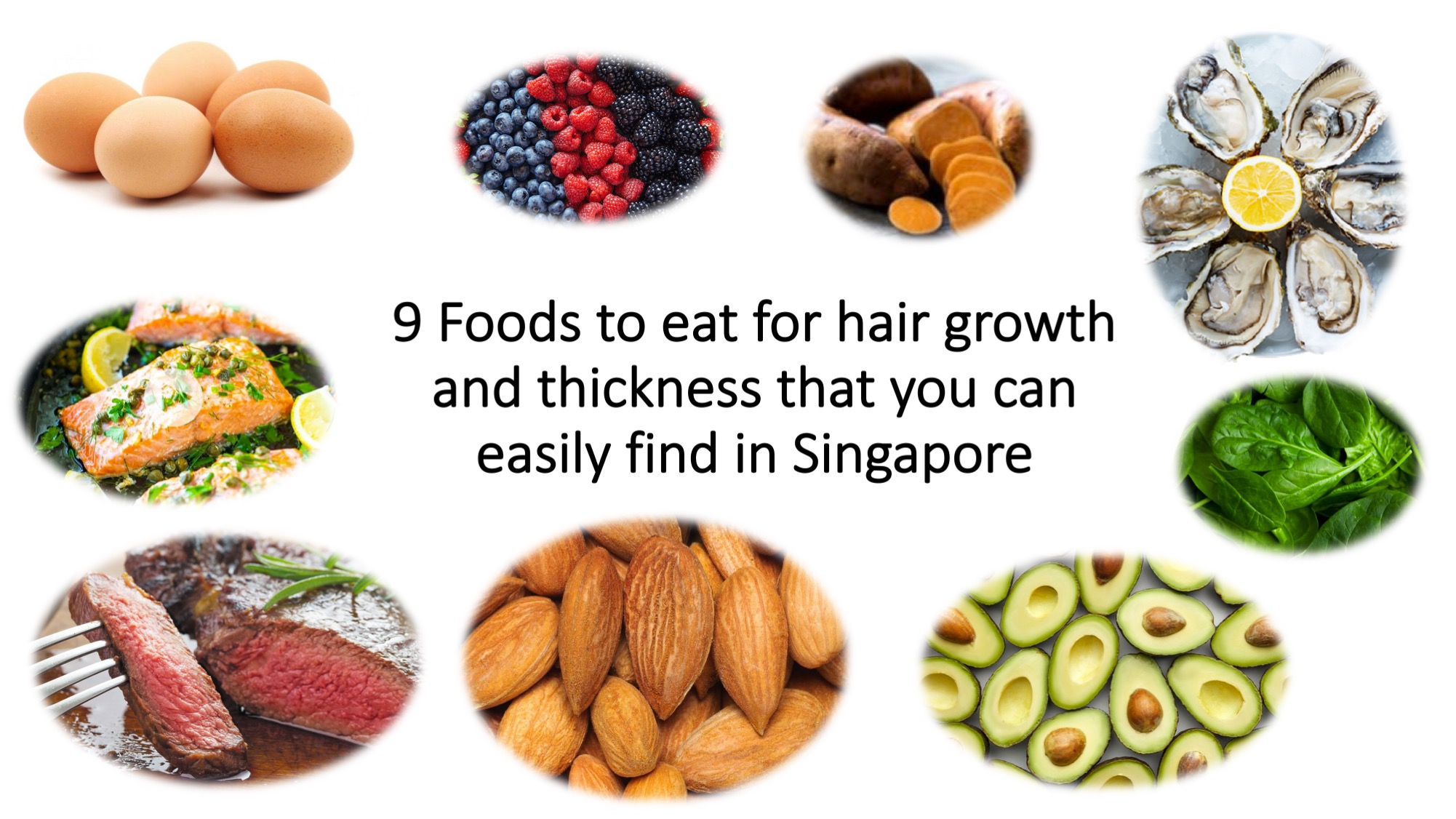Table Of Content

If you think you lack any of the nutrients that support hair growth, try adding some of these foods to your diet. And if you’re considering taking a supplement to address any nutritional deficiencies, make an appointment with your healthcare provider first. Finally, if you notice any hair loss and want to discuss your options with a licensed healthcare provider, we offer free consultations at Ro. A provider can discuss your hair goals and prescribe medications to help, if indicated.
Collagen Types and Hair Application
Hair growth is a complex process that hinges on several different factors. Key nutrients, like omega-3 fatty acids, biotin, and other vitamins, are important for growing hair. Foods such as eggs, fatty fish, dark, leafy greens, meat, bell peppers, and more contain the nutrients to help keep hair healthy. "The healthy fats in nuts are great for all organ health, including hair, skin, and nails," says Gohara. Walnuts, almonds, cashews, and more of these tasty morsels contain a variety of vitamins plus zinc that can help you avoid a deficiency in any of these nutrients, which has been linked to hair loss.
Plus, get a FREE copy of the Best Diets for Cognitive Fitness.
"We check protein levels, iron, iron storage, vitamin D and a number of other labs to make sure you don't have deficiencies." Although the causes of hair loss are many — including genetics, age, hormones, nutrient deficiencies, toxicity, medications, and autoimmunity — changing your diet can, in many cases, be helpful. "Proper diet and supplements can slow or reverse hair loss, and make the hair thicker and healthier," says nutritionist Joseph Debé, DC, CDN, CCSP. Proteins, which play a key role in many bodily functions, are composed of smaller chemical building blocks called amino acids. The amino acids cysteine and methionine are especially important for hair growth because the body turns them into a protein called keratin, which hair, skin, and nails are made of (Goluch-Koniuszy, 2016).
stress
“Mangos are high in vitamin A which can assist with cell growth and scalp health." “Peppers are high in vitamin C which acts like an antioxidant and a collagen producer which can assist with hair growth,” says Wheeler. “Zinc is an antioxidant mineral that also increases keratin production,” Yawitz says. While it’s helpful to incorporate beneficial foods, try not to focus solely on a limited number of foods.
4 Anti-Inflammatory Foods That Help Treat Hair Loss, According To A Dermatologist - Yahoo Life
4 Anti-Inflammatory Foods That Help Treat Hair Loss, According To A Dermatologist.
Posted: Sun, 09 Jul 2023 07:00:00 GMT [source]
The study was not double-blind (double-blind means that neither the participants nor the researchers know which treatment the individual participants are receiving). The study's authors were employees of the company that commercialized the product. A 2022 study on in vitro (out of the body, typically using test tubes and similar equipment) human dermal papilla cells and mice found some potential positive effects from fish-derived collagen peptides. These findings suggest that fish-derived collagen peptides could, at some point, be used to promote hair growth, but more research is needed on humans to confirm this finding. When you don't have enough, you can experience hair loss — even in your eyelashes! Dr. Debé notes that zinc supplementation has been shown to improve hair loss in women with polycystic ovary syndrome (PCOS), according to a Biological Trace Element Research study.
May help to manage blood sugar
So, following a well-rounded diet high in foods rich in the nutrients required for hair health is crucial to supporting optimal hair growth. If almonds aren't your thing, other sorts of nuts may help with hair growth, too. 'Nuts are packed with nutrients like vitamin E, B vitamins, zinc, and essential fatty acids,' says Gomer of pistachios, almonds, and the like. While large, rigorous trials are lacking on which foods directly influence hair growth, eating more of the nutrients that support healthy hair may help. Greek yogurt also has an ingredient that helps with blood flow to your scalp and hair growth.

Dealing with hair loss? Add these foods to your diet for healthy hair growth - The Times of India
Dealing with hair loss? Add these foods to your diet for healthy hair growth.
Posted: Mon, 22 Jan 2024 08:00:00 GMT [source]
Fatty fish is also a great source of protein, selenium, vitamin D3, and B vitamins, which may help promote strong and healthy hair (11). While more research is needed to understand the connection between micronutrients and hair loss, ensuring you’re getting enough of these 13 foods rich in nutrients that support hair growth is a good idea. While many products do provide applicator nozzles that reach through the hair, some droppers aren’t as precise. There is a commercially available food supplement tablet containing hydrolyzed fish-origin collagen (300 mg/dose), taurine, cysteine, methionine, iron, and selenium, marketed for people with hair loss disorders. There is no controlled data showing the efficacy of this product as an addition to specific treatments for hair loss conditions. A 2023 study found that participants given this supplement had a better response to hair treatments than those who received the treatments alone, but the study had several limitations.
The Best Foods to Eat for Hair Growth
These include biotin, protein, choline, iron, and vitamins A, D, and B12. They also have lutein and zeaxanthin, two antioxidants known to maintain the health of eyes, hair, and skin. Most of the egg's vitamin D is found in the yolk, so you may not get the same benefits from egg whites. Protein is the main component of hair, with the primary component of the hair fiber being keratin, which is made from amino acids.
That’s why getting zinc from foods like oysters may be better than supplements since foods provide zinc in small but healthy doses (29). Oxidative stress occurs when free radicals overwhelm the body’s antioxidant defense system. Certain seeds like flaxseeds and chia seeds also provide omega-3 fatty acids. Some studies have found lower levels of vitamin E in people with hair loss, but the evidence is conflicting (1).
Additionally, low-level laser therapy (LLLT) and platelet-rich plasma injections are popular in-office treatments that may help improve hair density in some people. Omega-3s are thought to have anti-inflammatory properties and protect hair follicles from damage. One study found women who took a supplement containing omega-3s had a reduction in hair loss and increased hair density.
Use it as a swap for oatmeal at breakfast or rice in a stir-fry, and try buckwheat-based Udon when making ramen or other noodle dishes. The ultimate in deliciously healthy breakfasts—we love it smashed on whole grain toast sprinkled with sea salt—the creamy avocado is packed with healthy fats and biotin. It's also a popular ingredient in many DIY hair masks (hello, self-care Sunday). Avocados also contain vitamin E, an antioxidant that nourishes the hair.
Leafy greens, like spinach, contain folate and iron, which are both important for maintaining a healthy blood supply to your hair. They also contain vitamin C, which assists with strengthening collagen production, says Taub-Dix. B vitamins as a whole (there are several of them) and folate have been linked to hair loss prevention, biotin often receives the biggest spotlight when it comes to hair. With vitamin C’s important role in collagen production, and vitamin A’s role in sebum production, both vitamins do wonders for your scalp health.

Both Gomer and Yawitz say vitamin E is an antioxidant that helps prevent oxidative stress that may lead to hair loss, since it can help protect the hair follicles from damage. Vitamin E is a powerful antioxidant that can actually absorb damaging UV light and protect skin cells. It also repairs sun damage on the scalp, which can cause hair to thin.
You can have your salmon grilled, broiled, raw, or mixed in with scrambled eggs—a great source of biotin. Don’t overlook the importance of getting enough protein if you’re looking to bring on some hair growth. Dermatologists treating hair loss look at the level of ferritin in your blood, because they can deduce what your body is doing with all the iron they told you to add to your diet during your initial consultation. If you'd been eating plenty of bok choy—which is a super iron-rich food—they would likely see a spike in your ferritin levels. In some cases (particularly in women), a mineral deficiency is the cause of hair loss. "It's important to make sure you don't have a lack of something in your diet that could be leading to hair loss," says dermatologist Carolyn Jacob, MD, FAAD.
Fueling up with enough calories and healthy fats does more than keep your muscles and heart healthy. Research in a January 2015 study from the Journal of Cosmetic Dermatology showed that omega-3 and omega-6 essential fatty acids could help reduce hair loss and improve hair growth. Salmon is also an excellent source of omega-3 fatty acids, a key nutrient for healthy hair. In one study, a majority of women who took omega-3 and other supplements reported a reduction in hair loss as well as an improvement in hair diameter and hair density. Your body doesn't naturally produce omega-3s, so you will have to get them from food or supplements. Unprocessed, natural food sources are the best places to look for essential vitamins and nutrients in hair growth.

No comments:
Post a Comment